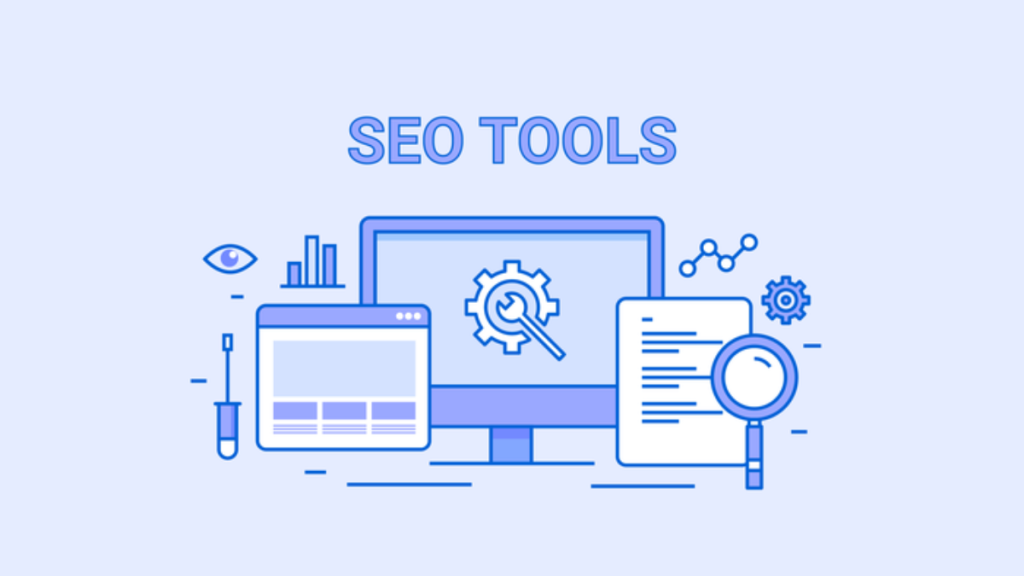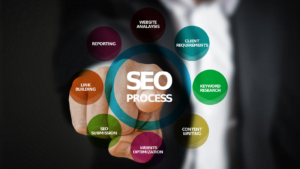What is SEO?

SEO stands for “search engine optimisation.” Search engine optimisation involves boosting both the quality and quantity of website traffic and brand visibility through non-paid (also known as “organic”) search results.
While SEO is an acronym, it has as much to do with people as it does with search engines. Getting to know your audience involves understanding what they’re searching for online, what answers they’re seeking, and the words they’re using. If you know the answers to these questions, you can connect with the people searching online for your solutions.
SEO tools help get your target audience in front of your content. This is important for getting better results from search engines, which have a direct impact on the success of your business and SEO strategy. SEO tools also help you improve your rankings in search engines, which increases the chances of attracting more clients and customers from these searches and increasing sales leads.
6 Brilliant Reasons You Should Use SEO Tools
Your SEO strategy will only be strengthened if you access accurate, reliable, easy-to-use SEO tools. Besides getting insights into your website’s performance, you’ll also learn what your competitors are doing in their SEO campaigns. Let’s skip the basics and understand why using SEO tools is a good idea.
1. Dissect Competitor SEO Strategy
Using SEO tools such as SEMrush or Raven Tools, you can analyse your competition’s SEO strategy. You can see where their backlinks come from and how their content is performing across platforms, besides their traffic numbers and rankings.
2. Save Time and Money on Manual SEO Audits
An SEO audit delivers a wealth of information regarding identifying problems with a website. Unfortunately, hand-written audits take a lot of time and money. By using SEO tools, you can reduce time and costs while maintaining or improving quality.
Some tools automate this process completely, such as SEMrush and Majestic, which provide easy-to-read reports that show various information. You can generate these reports for as little as $100 a month for yourself or your clients.
In these reports, we provide a roadmap for fixing what needs to be done on your website, from on-page SEO to content, linking, and loading speed. You can build a rock-solid SEO foundation for your website by starting with an SEO audit.
3. Find High-Converting Keywords for Content & Content Marketing
Finding the right keywords for your website is more challenging than it seems. A good search volume and low competition aren’t enough to find industry terms with decent search volume. There are many other factors to consider.
One of the most important factors is the intent behind the search terms users use. Search terms users are looking for:
- For free information?
- To solve a problem?
- To buy a product?
These questions will need to be answered.
4. Track SEO Progress & KPIs
You can easily see when your SEO efforts are paying off with SEO tools. Depending on your goals and business model, you will measure different key performance indicators (KPIs). These may include:
- Keyword rankings
- Domain authority
- Number of backlinks
- Traffic
- Form fills
- Sales
- Shares
- Clicks
- Social media comments
It is important to track your progress across multiple metrics and platforms to ensure not only that you are getting more traffic but that it is also converting. Reports can be generated that compare your progress period-over-period and against your competition.
5. Visualize & Conceptualize Data
It may surprise you to learn that not every SEO pro is a numbers person. The good news is that there are plenty of SEO tools available to help you visualise the data and make sense of it.
What Is Data Visualization?
Data visualisation involves presenting data as graphs or charts. In contrast, to decipher numbers yourself, data visualisation tools conceptualise and analyse data meaningfully. This is extremely helpful if you are tracking SEO progress over time, analysing user demographics, or analysing marketing campaigns.
Data Visualization with SEO Tools
You can visualise and analyse data at a glance using graphical reports generated by many SEO tools. Using these can be helpful when explaining complicated metrics to clients. Marketing data virtualisation tools like TapClicks can help you inform your SEO strategy and communicate that strategy to clients.
6. Communicate Clear ROI to Clients
It is also easier to show your clients the results of SEO with the help of SEO tools. When you work as a marketer or SEO specialist, you want to increase traffic and sales for your clients. There’s no denying that SEO tools help you determine what’s working and what isn’t.
Custom reports can be generated from SEMrush so you can send them to your clients. Make sure you highlight your KPIs, achievements, and even the meaning of the data.
It is more likely that a client will stick with you for the long haul if you can demonstrate how many leads or how much revenue you generate through SEO. This will also make it easier to position value adds and upsells to help elevate the product.
Conclusion
The importance of SEO lies in the fact that it makes your website more visible, which means more traffic and chances to convert visitors into paying customers.
FAQ
What are SEO tools for content writing?
SEO tools are great tools in terms of content writing. They help you find relevant keywords and ensure that your content is optimised for search engines. Investing in SEO can lead to long-term exponential growth for websites. SEO is one of the most effective ways for brands to build credibility and trust with audiences, making it an essential part of a digital marketing strategy.
Are keywords and SEO the same?
When it comes to keywords, they are different. They are not the same as SEO keywords. SEO is about using a keyword to find a product or company online and getting traffic to your website. When you use a keyword like “mature” or “young”, you are looking for something that will get visitors interested in your product or service and make them buy it.
Different people and companies use keywords in different ways when they want to find stuff online. Some people use them as an indicator of how good their site is at attracting visitors, some use them to measure their own website’s performance, some use keywords for advertising, and some just want to see what things other people search for on Google.
What is the different content in SEO?
The goal of content SEO is to create content that helps your website rank highly in search engines. Content writing includes everything that goes into structuring and writing your website’s content.





